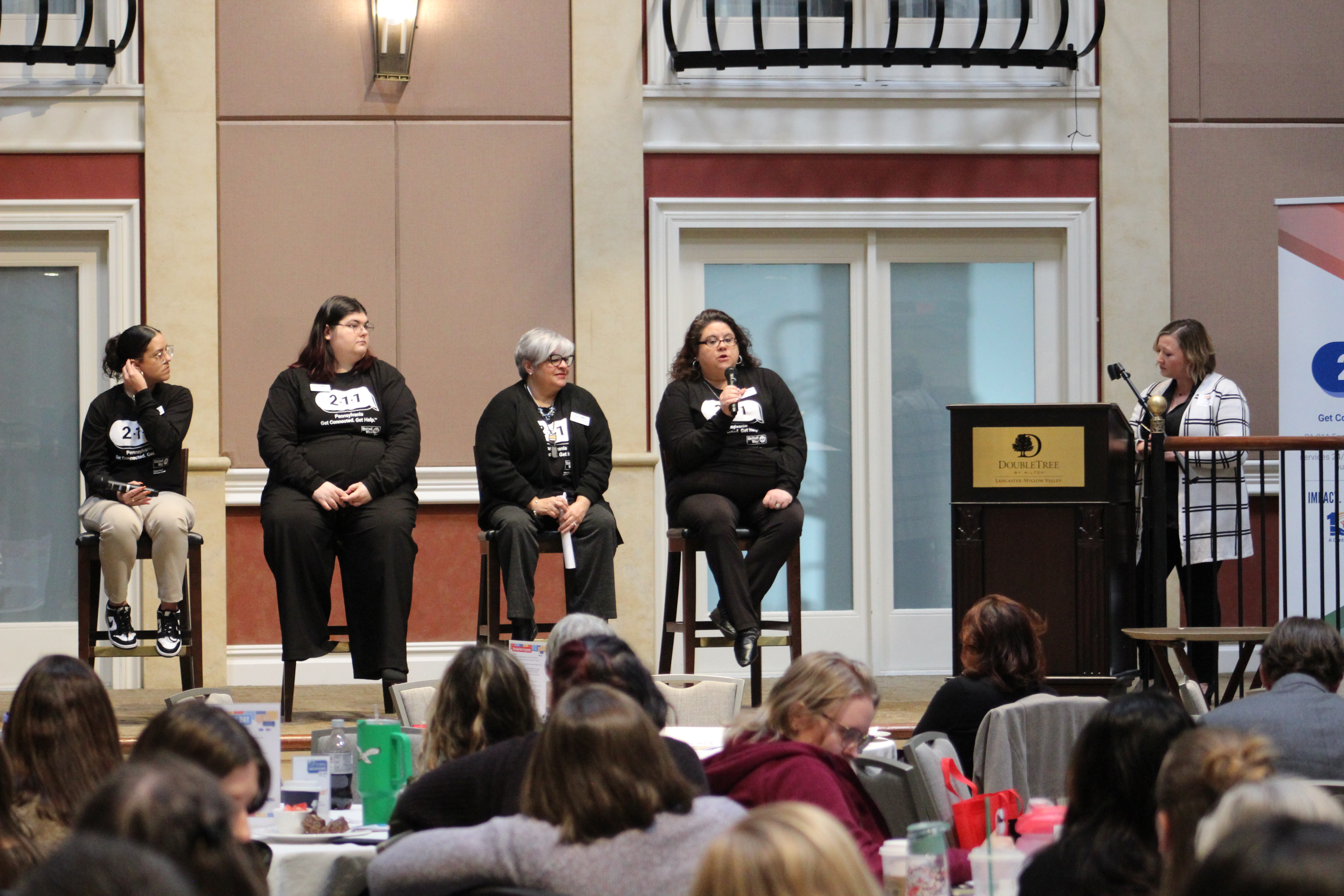United Way of Lancaster County’s, 211 Day: Capacity Building Summit, held a panel for PA 211 East Resource Navigators to speak about their experiences working for the community. PA 211 East is a part of nationwide service that connects individuals to essential resources like housing, healthcare, childcare, food assistance. PA 211 East covers 7 counties in the commonwealth including; Berks, Carbon, Lancaster, Lebanon, Lehigh, Northampton, and Schuylkill. The panel was moderated by Brooke Smith, a board member of United Way of Lancaster County, included panelist Jasmine Rosas, Adianna Collman, MaryAnn Lugo-Rodriguez, and Nicole Shenk.
211 workers, according to Rosas, go through “vigorous” training consisting of first “learning the ropes,” followed by shadowing, then certification courses. Shenk, who is the general supervisor of information and referrals, added that their training continues throughout their careers, such as seminars, coaching sessions, and staying up to date on changes in society.
Most calls to 211 deal with financial assistance and housing. Shenk elaborated with demographics, stating that most callers are two-income households whose resources have been stretched thin, childless households, and the elderly.
Rosas said an important aspect of taking 211 calls is listening to the caller and making them feel comfortable. “We are all trained that quality is better than quantity,” Shenk said,
Smith asked the panelists about the hardest call they took. Lugo-Rodriguez told a story about a grandmother, caring for four of her grandchildren, who was about to have her electricity shut off. The grandmother was crying, but soon afterward, one of the grandchildren was heard on the line asking her grandmother why she was upset. When she affirmed to her child that she was fine, the child said: “Don’t worry, grandma, everything’s going to be okay.”
“It’s heartbreaking,” Lugo-Rodriguez said. She continued that it is a common experience she sees, grandparents being made to become parents again and running into financial difficulties.
According to panelist 211, can refer to services many may not be aware exist. These include recreational programs, pet pantries, budget counseling, and services for seniors such as snow shoveling and errand-runners. For serious cases, however, 211 Information & Referral Specialists are trained to perform a “warm handoff,” which according to Collman gently shifts the call over to one of many crisis hotlines available. The worker will ask for the caller’s permission before making the handoff.
Shenk explained that one of the best things people can do to advocate for 211 is to encourage people to call 211 before they go online to look for resources. “We do the research to make sure that when someone calls in, we are giving them resources they can actually use.”
“Be a voice for this great service in our community,” Smith said in closing the panel, “This could be your neighbors, your friends, your family, this could be any one of us, you know, one situation away from finding ourselves in a vulnerable situation where we have to call.”
PA 211 East is accessible over the phone, Facebook and Instagram, through text messaging, and through its website via chat or guided search.






